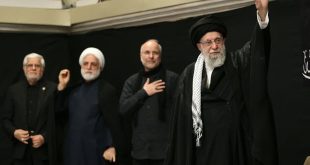This article evaluates the extent to which Islamic law and fatwas in Malaysia can control the practice and promulgation of Shi’a teachings.
Shi’a teachings and doctrine are currently being socially-constructed as a new threat to the survival of Sunni Islam, followed by the majority of Muslims in Malaysia. The Government has taken action by using legal mechanisms to control the influence of Shi’a teachings and to prevent its widespread proliferation. The Islamic legal provisions concerning aqidah (Islamic creed)-related offences and fatwas are potentially regarded as tools to monitor the lives of Shi’a individuals and communities in Malaysia. This article critically evaluates the formal consequences for Shi’a communities in Malaysia stemming from a legal framework, which is based on Sunni Islam. Furthermore, this article evaluates the extent to which Islamic law and fatwas in Malaysia can control the practice and promulgation of Shi’a teachings. The significance of this article is in its depiction of how Islamic law in a Sunni Islamic state may impact the religious practices of individuals and communities who make up a Muslim minority, with Shi’ites being the prime example.
Bibliographic Information
Title: Criminalising Religious Pluralism: The Legal Treatment of Shi’ites in Malaysia
Author: Mohd Al Adib Samuri and Muzammil Quraishi
Published in: Journal of Shi’a Islamic Studies, Volume 9, Number 4, Autumn 2016
Language: English
Length: 30 pages
 Criminalising Religious Pluralism The Legal Treatment of Shi’ites in Malaysia-2-31
Criminalising Religious Pluralism The Legal Treatment of Shi’ites in Malaysia-2-31
 Ijtihad Network Being Wise and Faithful Muslim in the Contemporary World
Ijtihad Network Being Wise and Faithful Muslim in the Contemporary World
